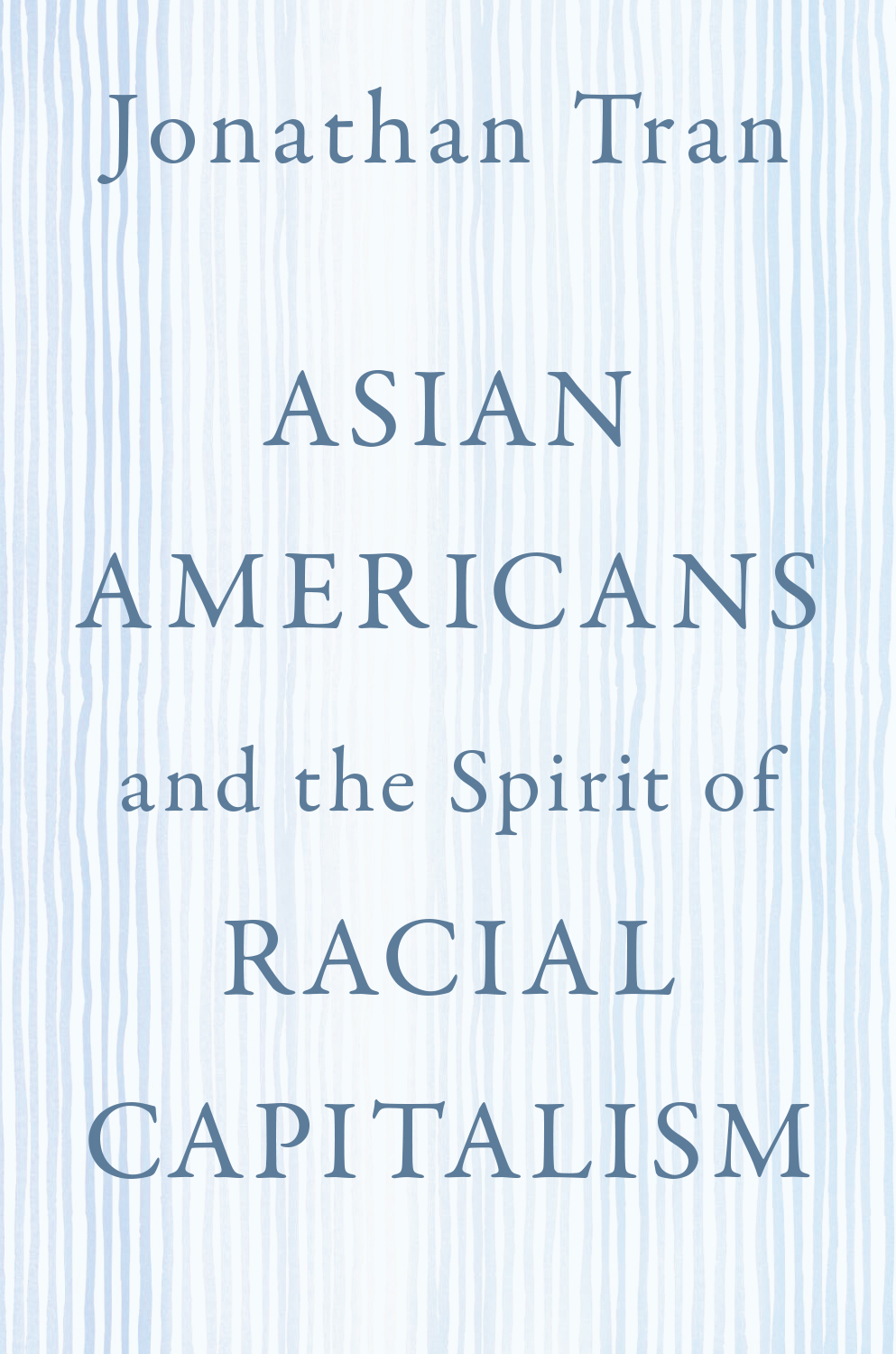This article is written by Dr. Jonathan Tran, Associate Professor of Philosophical Theology and George W. Baines Chair of Religion at Baylor University.
—
Years in the making, my book is finally out. It is titled Asian Americans and the Spirit of Racial Capitalism (Oxford University Press). The book aims to break new ground and reshape the field of Christian theology.
I foreground the story of Asian Americans and show why serious consideration of Asian Americans forces us to rethink how we talk about race, racism, and antiracism.

The book attempts to challenge current antiracist modes of thought by shifting the focus from racial identity to questions of political economy. It lays out how “racial capitalism” uses race/racism to facilitate dominative exploitation. In the book, It shows how racism persists because it works to hold up entire structures and systems of death-dealing inequality and injustice. The book demonstrates how the marginalization of Asian Americans is not an accidental feature of contemporary antiracism but a necessary part of its white/black zero-sum mode of thought. As long as we continue to think in terms of race, we will continue to marginalize Asian Americans.
But more than shedding light on the violent idolatries of racial capitalism or gaining better representation for Asian Americans, my book seeks to reframe the conversation so that antiracism becomes a form of Christian discipleship.
The book’s argument unfolds through two large case studies: one where Asian American Christians perpetuate racial capitalism and the other where they resist it on the way to bearing witness to the divine economy as God’s original revolution.
Here are some of my recent social media posts (https://twitter.com/catjonathantran) where I outline goals, challenges, and hopes for the book.
3 Ways My Book Tries to Reframe Race/Racism Conversations:
- By showing how race is used to justify domination and exploitation, I reframe the conversation from racial identity to political economy. Racism begins as a structural and systemic reality. Racism persists because it works.
- I imagine Asian Americans as antiracism’s miner’s canary. I ask, ‘Why does antiracism marginalize those already marginalized by racism?’ The racial capitalist reframing opens the conversation up, and illuminates the morally complicated role assigned to Asian Americans.
- In the story I tell, Christianity can still contribute something positive. But it must dispossess itself of its racial capitalist advantages, including those that benefit Asian American Christians. Given Christianity’s racism, telling this story feels like an act of faith.
5 Controversial Things this Book Was Glad to Do, or Try to Do
- Amplify the voices of our original critical race theorists (CRT before “CRT”) including those who have gone under the radar of American theology (C. L. R. James, Oliver Cromwell Cox, Angela Davis, Cedric Robinson as forerunners to Adolph Reed, Barbara & Karen Fields, Cedric Johnson).
- Invite Asian American Christians to more joyful lives than those offered by the model minority myth.
- Humanize those racialized as white. Foils of whiteness/white guilt/fragility, while cathartically and rhetorically powerful, only reinforce white racial identity. We need stories that permit white folks meaningful roles in the larger story of liberation, including their own.
- Highlight proclamation rather than resistance as the primary key of Christian theology, proclaiming that justice and mercy are natural to the world because justice and mercy are natural to God.
- Emphasize the role of the church in God’s redemption of all things, thereby making it accountable for its failings and calling it do better.












